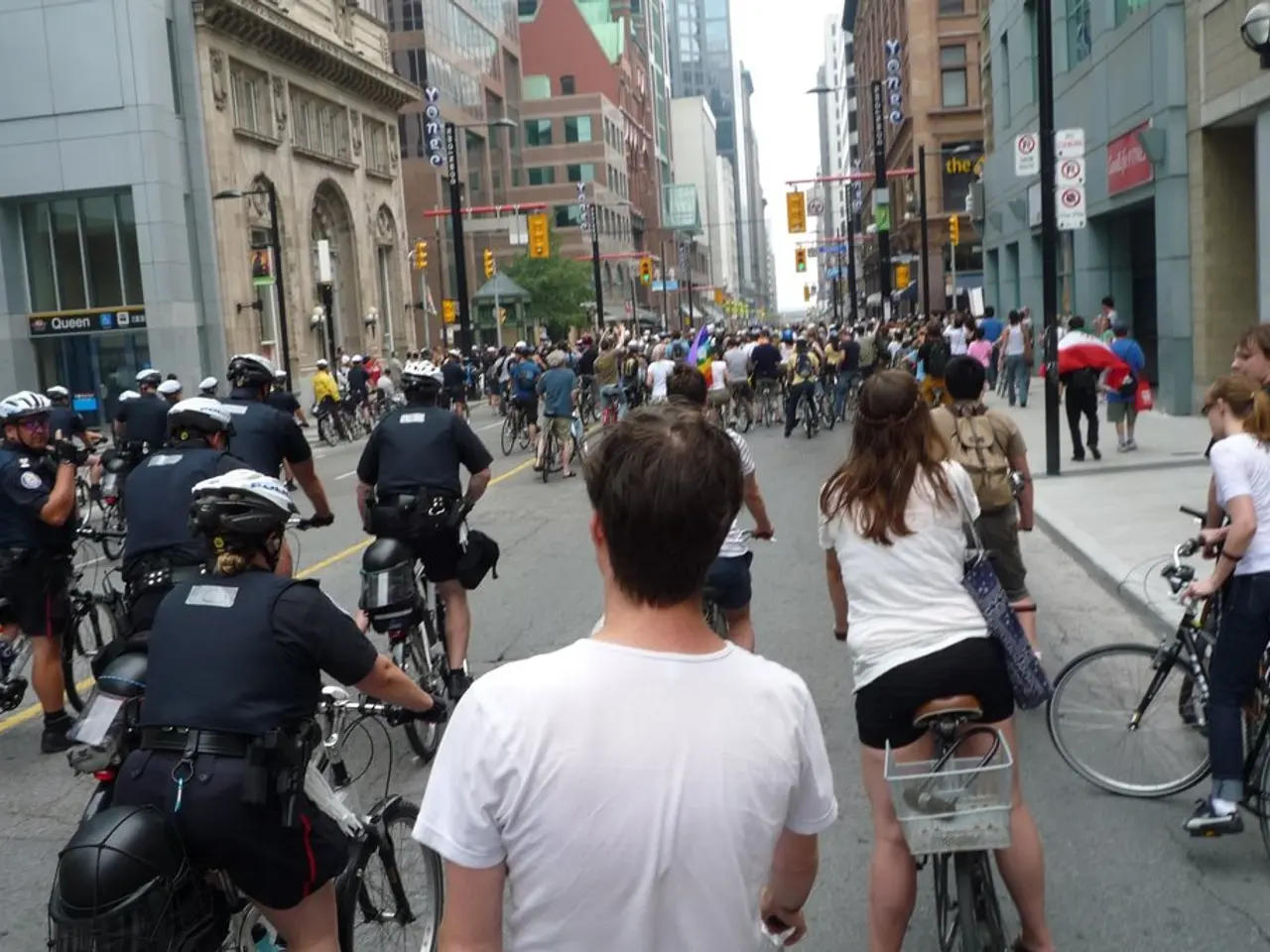Copenhagen Expands Cycling Network to Maintain European Capital Status
Copenhagen, famous for its cycling culture, is expanding its 'super cycling highways' and 'green wave' network to maintain its status as Europe's cycling capital. The city is investing in new routes, bridges, and technology to improve cycling efficiency and reduce car dependency. Meanwhile, German cities like Hamburg and Rostock are inspired to build fast bike lanes connecting inner cities with suburbs.
Hamburg and Rostock are following Copenhagen's lead, planning and implementing 'super fast bike lanes' to connect inner cities with suburbs. Hamburg is improving and expanding its bike paths, while Rostock is planning a high-cost bike highway by reducing lanes on a city highway.
Copenhagen, however, faces a challenge: cycling saturation during rush hour. Congestion makes it difficult to fully utilize the 'green wave' system, which gives priority to bicycles over cars. To tackle this, the city is expanding its network, synchronizing traffic lights for cyclists traveling at 20 km/h during peak hours. The new investment includes the construction of the longest cycling bridge in the country.
By 2025, Copenhagen aims to extend its 'green wave' network to 15 new routes, investing in bridges, lighting, and cyclist flow measurement. The city has installed 19 'cycling barometers' to measure user speed and adjust traffic lights accordingly. This project is part of a public health and climate strategy, aiming to reduce road traffic deaths and air pollution, and ultimately consolidate Copenhagen's position as the European capital of cycling.






